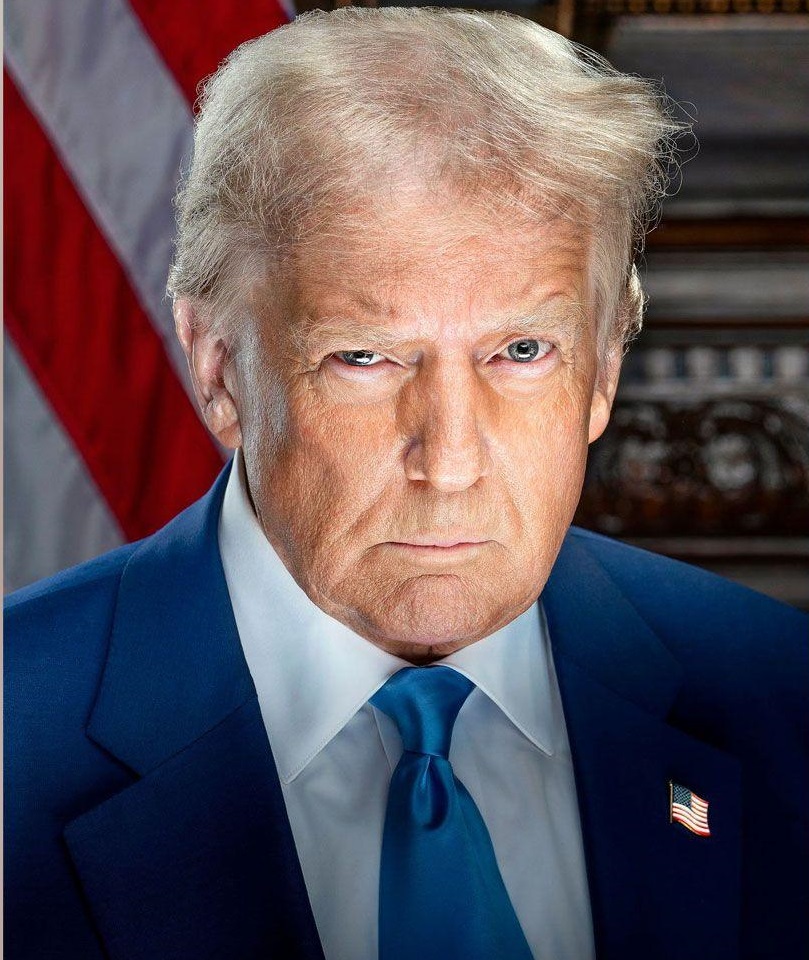President Donald Trump’s return to the White House on Monday saw the issuance of numerous executive orders aimed at reshaping United States’ policies on immigration, health, and foreign relations, among others.
While the directives primarily targeted his promises to unleash the “golden age of America”, their ripple effects extend beyond America to places like Nigeria and Africa at large.
Nigeria, which happens to be the most populous nation on the continent, will undoubtedly feel the impact of Trump’s executive orders in areas such as immigration restrictions, health, and trade policies, energy, etc.
Hereunder are five key executive orders issued by Trump and how they will affect Nigeria.
1. Birthright Citizenship: Following Trump’s executive order, titled “Protecting the Meaning and Value of American Citizenship,” taking effect from February 20, Nigerians can no longer travel to the United States to give birth with the hope that it would automatically grant the baby American citizenship.
There will be no more passports, citizenship certificates, and other documents to children born in the US to mothers who are in the country illegally or are temporary visa holders.
Also, if their fathers are not citizens or legal permanent residents, the children cannot be American citizens.
For a child born in the US to be an American citizen, at least one parent must be a US citizen or green card holder.
2. External Revenue Service: Under his America First Trade Policy, Trump announced plans to establish an External Revenue Service with a broader plan of using it to collect tariffs, duties and other foreign trade-related revenue.
The chairman of Nigeria’s Presidential Committee on Fiscal Policy and Tax Reforms Taiwo Oyedele, wrote on his X (formerly Twitter) handle that the move to impose tariffs and taxes on other countries could disrupt international trade and further complicate the already complex global tax system,
According to Oyedele, Trump’s decision highlighted the importance of the ongoing tax reforms in Nigeria.
“By revamping our tax system, we can better navigate potential challenges and seize any opportunities this development may present,” he said.
3. Deportation Policy: Trump on Monday kicked off his sweeping immigration crackdown, tasking the U.S. military with aiding border security.
Declaring illegal immigration a national emergency, Trump ordered the Pentagon to provide support for border wall construction, detention space, and migrant transportation and empowered the secretary of Defense to send troops to the border as needed.
Shortly after the inauguration, U.S. border authorities said they had shut down outgoing President Joe Biden’s CBP One entry program, which had allowed hundreds of thousands of migrants to enter the U.S. legally by scheduling an appointment on an app.
Existing appointments were cancelled, leaving migrants stunned and unsure of what to do.
Though the Director of the African Diaspora Congress, Obed Monago, had assured Nigerians in the US that fears of mass deportations under the Trump administration are unfounded, he relayed that US immigration policies are likely to become stricter.
If Monago’s statement turns out to be true, the implication is that Nigerians who fall short of immigration policies, and Nigerians who reside in the U.S. are are dependent on their children’s citizenship, already risk deportation.
4. Energy Emergency: Donald Trump declared a national energy emergency, as part of a barrage of pro-fossil fuel actions and efforts to “unleash” already booming US energy production that included also rolling back restrictions in drilling in Alaska and undoing a pause on gas exports.
The Chief Executive Officer of the Centre for the Promotion of Private Enterprise (CPPE), Dr Muda Yusuf, said on Tuesday that Trump’s sweeping policy on the restart of oil drilling in the US and drive for investment would impact global oil supply, which would impact Nigeria’s crude revenue and the Naira.
Yusuf said that the US decision to restart oil drilling may boost global crude supply, thereby leading to a reduction in global oil price, which will in turn impact negatively Nigeria’s crude oil revenue.
Going by Yusuf’s assertions, a reduction in global oil prices would reduce local energy prices, which is good for businesses and Nigerians, even though “it will negatively impact Nigeria’s oil revenue,” as he said.
5. Withdrawal from WHO: Trump’s announcement that he would withdraw the US from the World Health Organisation solidifies his disapproval of the WHO and its leadership. During Trump’s first term in 2020, he attempted to get the US to part ways with the global health organisation, citing its alleged mishandling of the Covid-19 pandemic and other global health crises.
In Monday’s executive order, Trump accused the organisation of demanding “unfairly onerous payments from the US, far out of proportion with other countries’ assessed payments”, a reference to China, which, according to Trump, contributes nearly 90% less to the WHO.
The US is the WHO’s top donor and partner, contributing $1.284bn during the 2022–2023 biennium. The withdrawal of US funding will negatively impact the WHO and its partners to identify and respond to emergencies across the world and advance other key global health priorities.
The withdrawal is expected to have profound implications for Nigeria and Africa at large, where the US-WHO partnership has been instrumental in addressing public health challenges, including disease outbreaks, workforce shortages, and health system inequities.
The US has been a key player in supporting WHO-led emergency responses to outbreaks like Ebola, Marburg virus, and mpox. In recent years, U.S.-WHO collaboration helped deliver vaccines and build health system capacity in several African nations.
Also, organisations like the Africa CDC are heavily reliant on WHO and U.S. collaboration and may face funding shortfalls with the withdrawal.
